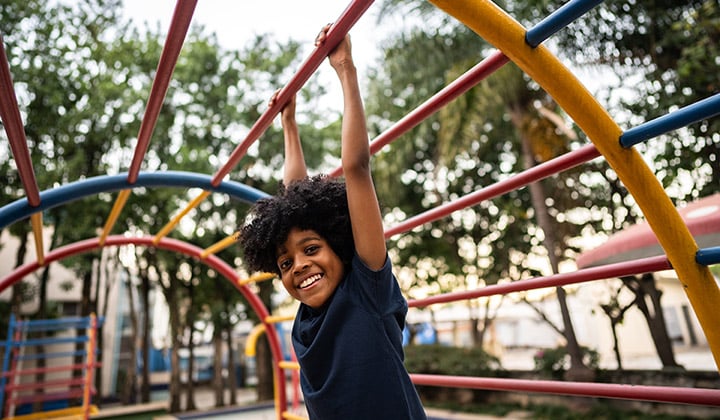Get updates
Have a parenting hack to share? Or a topic you'd like to see?
Why free play is so important for your child

Kids love to play — and that’s a good thing! Play isn’t just fun, it helps children grow strong, think better and feel happier. One of the best kinds of play is called free play. It’s simple, fun and super important for your child’s health and development.
What is free play?
Free play is when kids play on their own, without adults telling them what to do. It can be anything from building with blocks, pretending to be superheroes, climbing trees or running around outside. The key is the child is in charge of the play.
Free play lets kids use their imagination, move their bodies and explore the world around them.
Why free play is good for kids
Free play helps kids in several ways:
- It builds strong bodies. When kids run, jump, climb and throw, they:
- Get stronger muscles and bones.
- Improve balance and coordination.
- Stay fit and healthy.
- It helps the brain grow, too. Free play helps kids:
- Solve problems.
- Think creatively.
- Remember things better.
- Learn faster.
- It supports emotions and friendships. Playing freely helps kids:
- Make friends and learn to share.
- Feel more confident.
- Handle emotions like frustration or excitement.
- Feel happy and relaxed.
What skills does free play build?
Free play helps kids build skills they’ll use for the rest of their lives. Kids who play freely are more likely to:
- Make friends and get along with others.
- Feel confident and bounce back from problems.
- Think clearly and solve problems.
- Stay active and healthy.
- Avoid stress and health problems later in life.
What ages should kids play freely?
All kids — from babies to teens — can benefit from free play. Experts say kids should get at least 3 hours of movement every day. This can include both free play and more organized activities like sports or dance.
For kids 6 and older, at least 1 hour should be more active — like running, jumping or playing tag.
Here’s what free play can look like at different ages:
- Babies (0–12 months): Tummy time, crawling and playing with soft toys.
- Toddlers (1–3 years): Running, climbing and exploring.
- Older kids and teens: Playing outside, riding bikes, dancing or playing games with friends.
Even as kids get older and join sports or clubs, it’s still important to make time for free play.
8 ways parents can encourage free play
You don’t need fancy toys or big spaces to support free play. Here are some easy ways to help your child play more:
- Start young. Even babies can enjoy simple play. The earlier you start, the more natural it becomes.
- Make it fun! Let your child choose what they want to do. Give them time and space to explore and try new things.
- Create a routine. Set regular times for play — like after school or before dinner. This helps make play a normal part of the day.
- Set up play spaces. Make safe areas in your home or yard where your child can play. Visit parks, playgrounds or nature trails for more variety.
- Offer toys and tools. Give your child things that spark creativity and movement—like balls, blocks, costumes, art supplies or musical instruments. Change things up now and then to keep it interesting.
- Be a role model. Show your child that play is fun! Join in sometimes, laugh and be silly. But also give them space to play on their own.
- Let them lead. It’s OK if play gets a little messy or if your child takes small risks. That’s how they learn. Just make sure the space is safe and check in now and then.
- Support all kids. If your child has a disability, talk to your doctor or therapist about safe and fun ways to play. Every child is different, and free play can help them grow in their own way.
Free play is one of the best gifts you can give your child. It helps them grow strong, think smart and feel happy. So, make time for play every day — and let your child lead the way!
